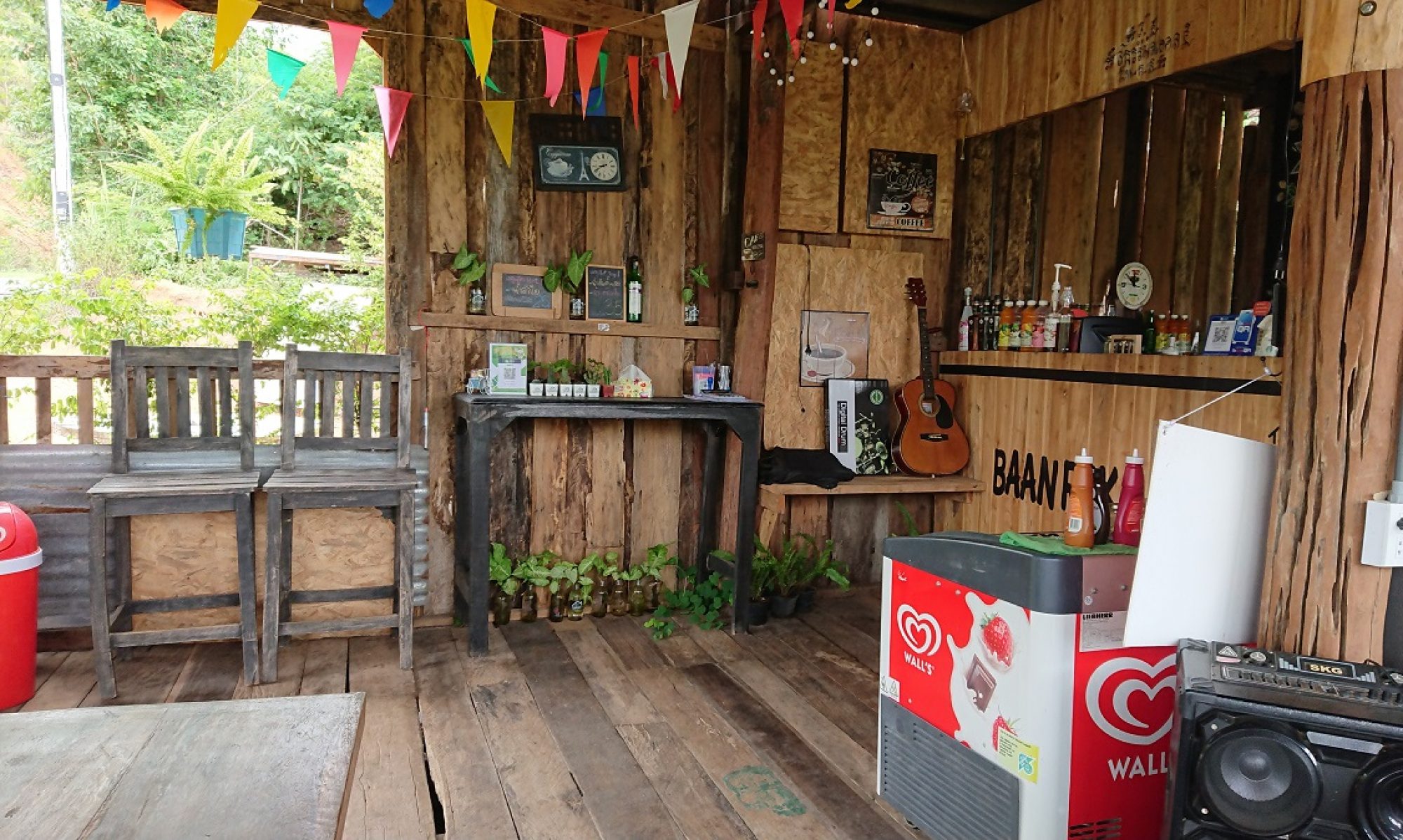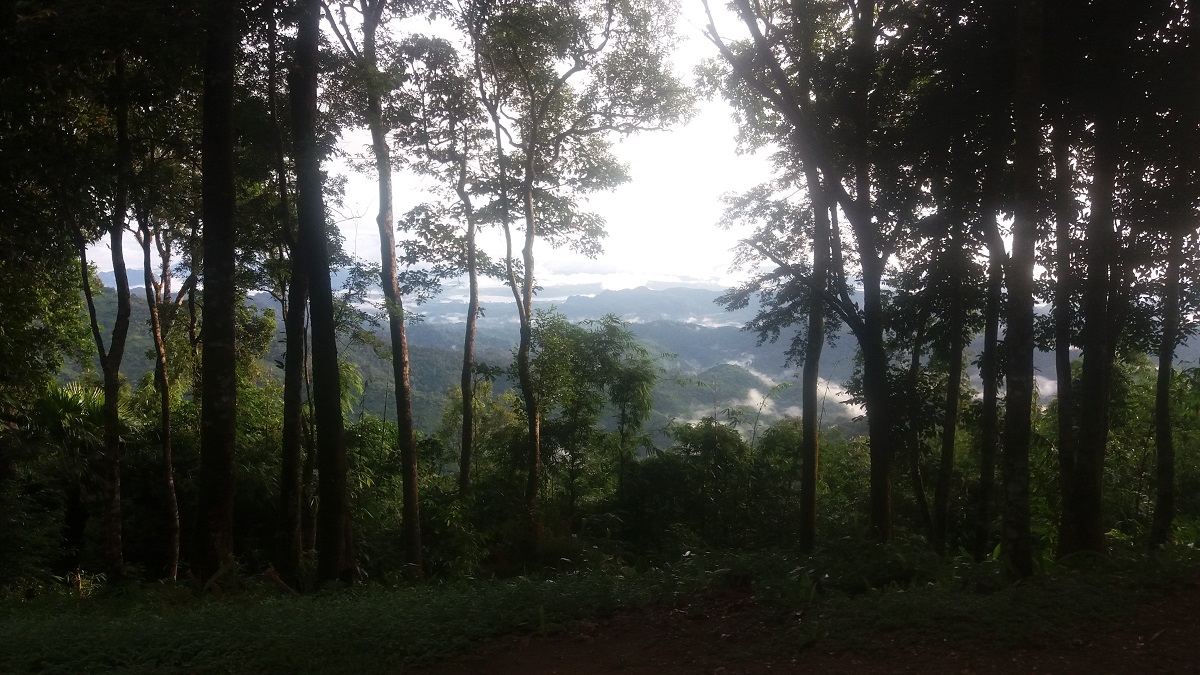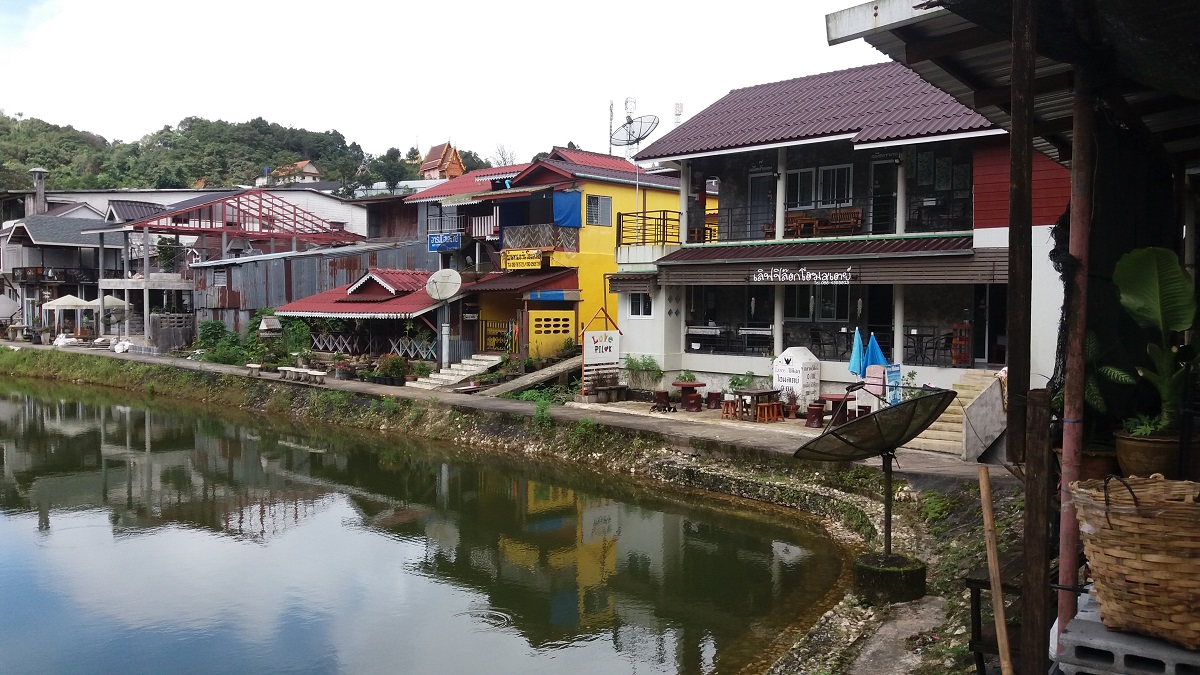Question – Where can I stay for relaxation & wildlife?
I’ll have a spare week in Thailand at the end of August. I’ll be there to volunteer at the elephant Nature Park in Chiang Mai.
I’m very much into ethical wildlife so would love to unwind somewhere safe and relaxing that has access to free roaming wildlife such as monkeys & turtles.
lonelyplanet.com/thorntree/forums/asia-thailand/thailand/relaxation-ethical-wildlife-where-to-stay?utm_campaign=subscriptioninstant&utm_medium=email&utm_source=forum
Good luck on turtles… 500+dives in Thailand and never seen 1….You need to go to Indonesia for turtles….
Many Thai resorts tours etc will claim green credentials – you need to be EXTREMELY skeptical. For instance many offer tours in areas where the public is not permitted and the environment is not prepared for human encroachment. (Koh Chang is one example)
So……..here’s my checklist.
A few things to think about when interacting or encountering animals in Thailand
How can you tell? – What can you tell in a day? “The average tourist doesn’t have the capacity to identify cruelty to animals because sometimes that cruelty is not overt.” Born Free Foundation
It’s almost impossible but try to keep in mind some of these items…..
The Law – Thailand has virtually no animal cruelty laws. – Prevention of Animal Cruelty Act – Dec 2014 – is Thailand’s FIRST EVER legislation!! -up to 1 month and/or fined up to 1,000 Baht – it is not clear whether this is extends to wild animals or only to protect domestic animals,. Omitted are such acts as “discarding animals or keeping them too narrowly confined, animals fighting for sport, the eating of live animals, as well as prohibiting the trade of dogs and cats for consumption.”
Zoos and Captive Animals – in the west, zoos are now largely scientific establishments that research wildlife and conservation – exhibiting the animals is of secondary importance.
Zoos in Thailand are not scientific institutions they are more like circuses. Keeping of protected wildlife is technically illegal. Permission is needed to start a zoo but guidelines are unclear and inspections were not required until recently. All this falls well short of international standards
Enforcement and Corruption – How much do the authorities do? – Granting of licences seems casual to say the least; some granted seem to fly in the face of common sense. When it comes to taking action against any animal establishment the authorities have been notably reticent.
Many people assume that if a place was operating outside reasonably acceptable standards, it would have been brought to task or closed. This is NOT the case in Thailand.
It is often difficult for visitors to Thailand to understand the depth breadth and all permeating influence of graft, nepotism and corruption in Thailand.
Are they GREEN?
Beware of claims of “conservation” – they are usually false. E.g. most large mammals cannot under any circumstances be released into the wild – tigers are incapable of survival without training from their mothers and would have no fear of humans. – Elephants can be released into large reserves, but unfenced would encroach on human habitation. “There is no alternative, animals must earn their keep” – This is a false perception. Many of these animals are illegally bred for profit in the first place. Owners have even under Thai law, a duty of correct care. There is also still a lot of habitat in Thailand that is suitable for conservation of both wild and captive animals. A survey in about 2007 showed potential for up to 2000 tigers – the current population in and around Thailand is between 100 and 300.
Conservation is not about keeping enough examples for us to look at. It is all about protecting the environment and preserving fully functioning eco-systems in the wild – the idea that examples in a zoo mean everything is OK is wildly out of touch with the real situation.
Keystone species: are animals that form a major part in the working of a bio-system. Tigers are apex predators; take them out of a forest and deer proliferate, trees get eaten and the system is damaged, it may even collapse. Elephants are the “tractors” of a system – They roam and eat vegetation which ensures distribution of seeds growth of plants, they give access for smaller animals to water and food; CAGED, animals take no part in this.
Cages – most cages in Thailand fail to meet minimum internationally accepted requirements. Size and time locked up are important. (Tigers need space in the wild – males up to 60 to 100 km2, females up to 20 km2). Bare cages are boring – animals need stimulation. They need something to do and some cover. (e.g. – Tigers are solitary and territorial by nature and seeing other tigers or any animals nearby can cause considerable stress)
Repetitive behaviour/lethargy. Caged animals often display clearly identifiable signs of psychological damage, resulting in unnatural behaviour patterns – these animals are stressed. Big Cats pace cages because they are bored out of their minds LITERALLY!
Tricks and Shows – If an establishment is making animals do tricks, such as paint, Orang-utans boxing – tigers jumping through hoops or behaviour that isn’t natural – then it is reasonable to assume that the are animals are being exploited. Training can be harsh and cruel
Babies – Be very suspicious of places with lots of young of any kind – Breeding of animals is a scientifically complex activity that takes into account many conservation issues. – Even if the animals themselves breed readily – it can result in inbreeding, hybrids and unwanted animals, and damage to gene pools. Unscrupulous operators usually do this to bring in customers to pet the babies. Breeding in captivity and a captive breeding program are not the same thing.
Speed-breeding is a set of techniques used by such places as tiger farms to keep female tigers producing litter after litter. It means there are always a few babies around to attract the public. Stillborns and runts are common in Tiger litters and can be used for bottling for TCM.
Mixed species exhibits – e.g. Pigs suckling tiger cubs – is a technique for speed breeding – taking the cubs from their mothers early on triggers a hormonal response and the female tiger can become pregnant again.
Animals don’t wear clothes.
Street Animals – Don’t pet, pose with or pay vendors carrying street animals – these creatures are subjected to horrendous abuse (drugging etc., in the case of reptiles having their mouths sewn shut), when their usefulness expires or they become too unmanageable they are killed.
Drugging – Anything from an iguana to an elephant – in Thailand they are habitually drugged to make them easier to handle – however with any kind of prolonged drug abuse there are side effects – this can often be unpredictable and violent behaviour. Animals have comedowns too.
Dogs – Don’t feed Soi dogs. Thailand has a serious stray dog problem – it is sustained by access to food- often garbage and donations by misguided but well-meaning people. If food runs low dogs stop breeding and the numbers of diseased and wretched animals roaming the streets reduces. If you must get involved with a street dog – get it neutered or spayed
Dogs as food – many dogs are caught and shipped abroad for human consumption. BUT – Dogs are also eaten in Thailand. They are often tortured to death, as it is believed that it tenderises the meat. Many have their legs broken and tied hind there backs to make transport easier. Consumption of dog meat is LEGAL in Thailand.
Looking after animals – Giving an animal your affection for 10 minutes – or even a day or a week doesn’t necessarily improve it’s life overall – your money is going to support or continue the abuse or suffering
Elephants don’t live in Towns and can’t carry heavy loads. – Elephants’ backs aren’t capable of carrying heavy weights. They are the wrong shape (In logging they were used for PULLING). If they offer elephant rides they are most likely exploiting their animals.
Mahouts are frequently frauds – a mahout traditionally lived with one elephant for his entire career. The “handlers” around parks and towns are usually inexperienced and RENT the elephant of its owner in order to make a bit of cash.
Beware of websites/forums promoting wildlife attractions. Are not always as unbiased as you might think – they receive advertising revenue of tour companies who profit from animal attractions. Advice is from people who either don’t understand the issues or refuse to accept they have participated in animal exploitation themselves
CITES – “Convention on International Trade in Endangered Species of Wild Fauna and Flora” – is an international treaty to protect endangered plants and animals. Thailand is a signatory and has been under pressure over the last few years to clean up their act and start shutting down the trade in a multitude of endangered flora and fauna. If you see animal products on sale such as ivory, amulets or skins, report it –
I must say I’m not finding it at all easy to avoid the awful sights when searching for a place to stay.
It’s so bad I think I may avoid it completely and spend my extra week elsewhere. Sumatra was suggested on another thread as incredible for ethical wildlife, I might try there instead.
I think I’d be too upset by the fate of orang-utans.
The reality is that S.E. asia in general is a ghastly place for all forms of flora and fauna at present. That’s not to say there aren’t people who care and organisations trying to educate and conserve. But it makes me sick to my stomach when resorts and hotels make totally baseless claims of being “green” and “living with nature” (or “natural” as they mistakenly say it)
So no to Sumatra too?
Where would you suggest?
I haven’t said no to anywhere. I just think that people need to be aware of welfare and conservation issues and try to find places that have genuine welfare and conservation at heart. I understand you have been volunteering – Maybe some people there have particular places they recommend. Failing that you can always Google a bit before visiting.
Is there anywhere you can recommend that you feel is truly ethical?
After doing very limited research in Sumatra I’ve now ruled that out too due to the many accounts of sexual harassment towards women.
I have emailed the Elephant Park to ask for a good place to travel onto next and await their response.
Ok – firstly check out the people at Elephant park. (how long are you volunteering for?). Then look at National parks.etc
Your problem is that August is wet season pretty much everywhere. Some parks will be closed or running on half mast. I’d probably try to go somewhere with a minimal foreigner population and a bit of scenery. I love the North of Thailand and Laos, but the more Southern Provinces have some nice coastline left.
You aren’t going to see hoards of wildlife roaming past your door anywhere …..except for monkeys and when they do that it is a terrible nuisance. Parks like Khao Yai and Kaeng Krachan and Khao sok have plenty of accommodation on hand ….I particularly like the boat trips on the Khao Sok lake which has a limestone karst topography.
Your budget is a bit tight so why not just backpack around for a bit, get to meet Thai people and a few tourists to get a feel for the country as a whole….or just head for Phang Nga and see what turns up. I doubt if you’ll need to book at that time of year.
I drive around Thailand extensively, I never book, I just see where I end up at the end of the day….it’s usually great..occasionally a let down, but it’s all part of the experience




